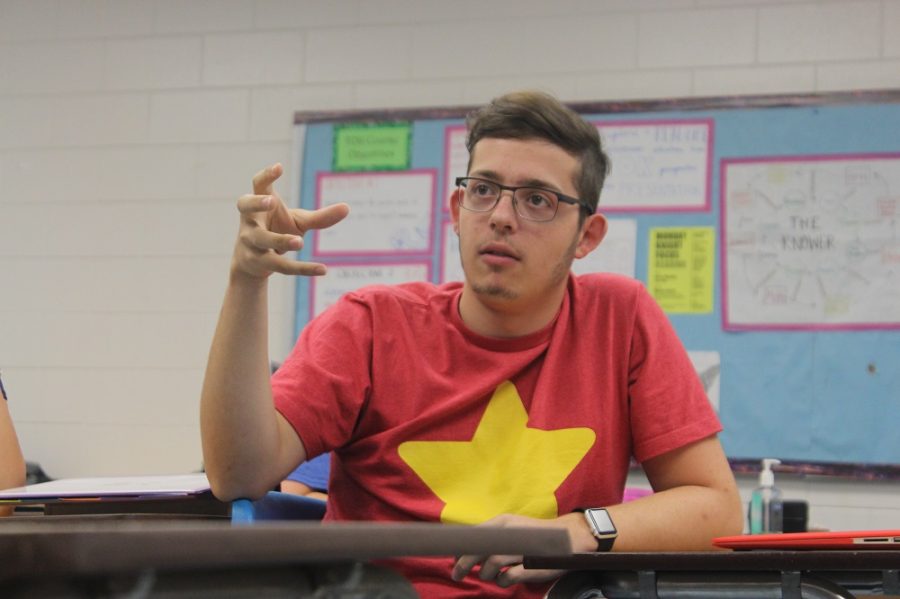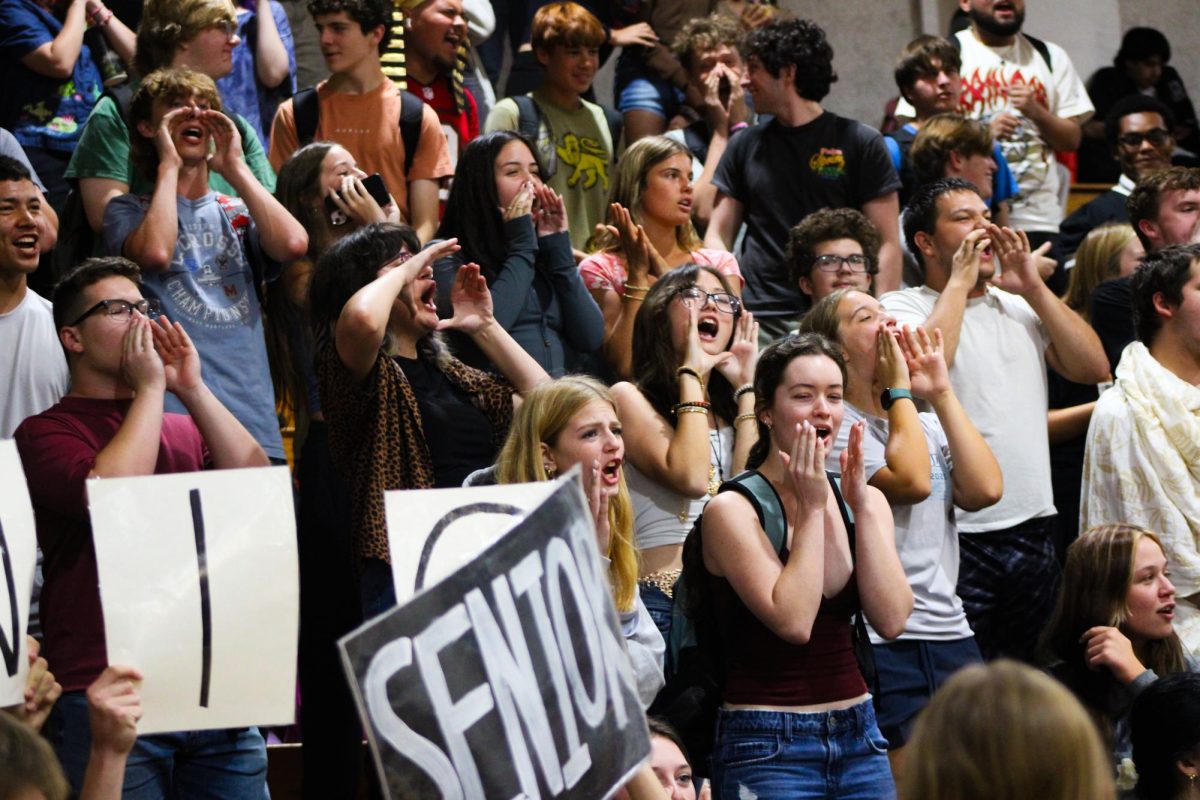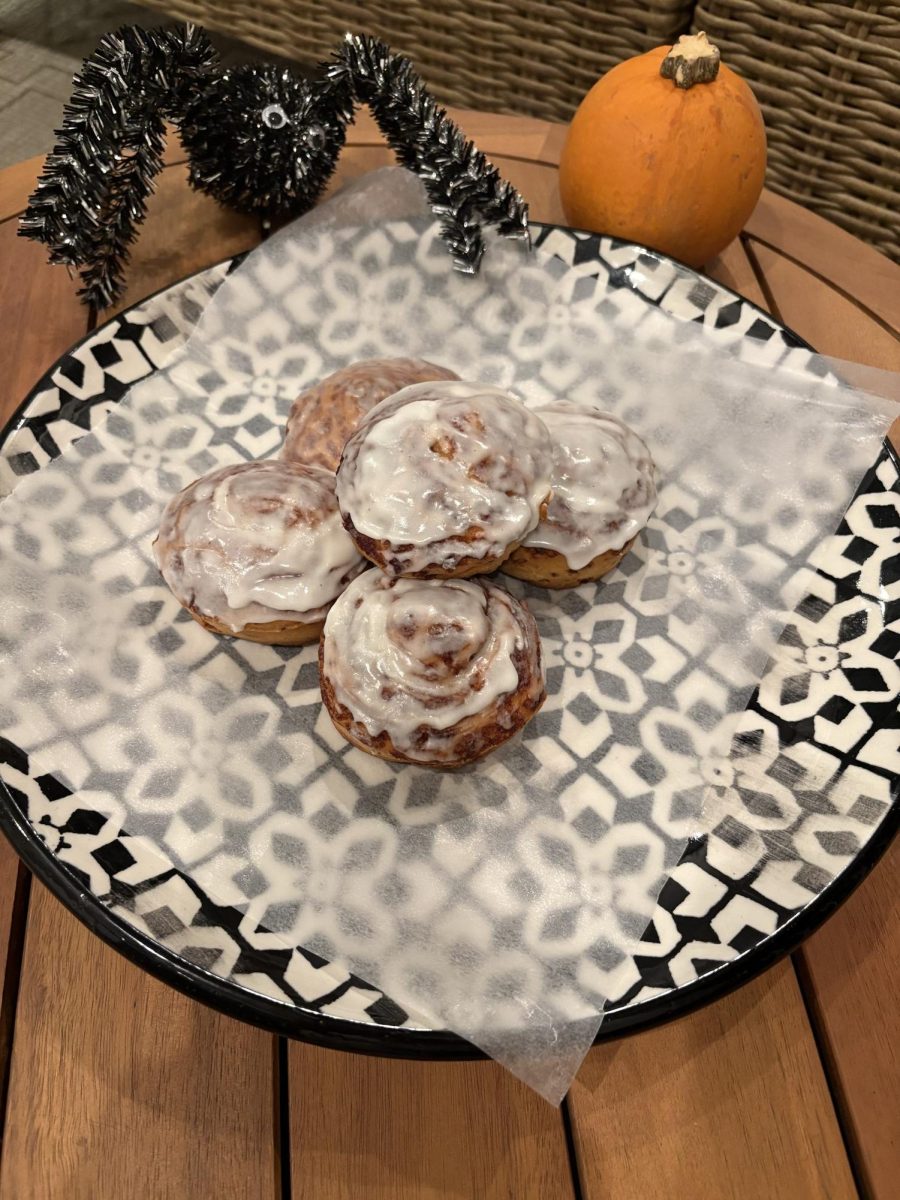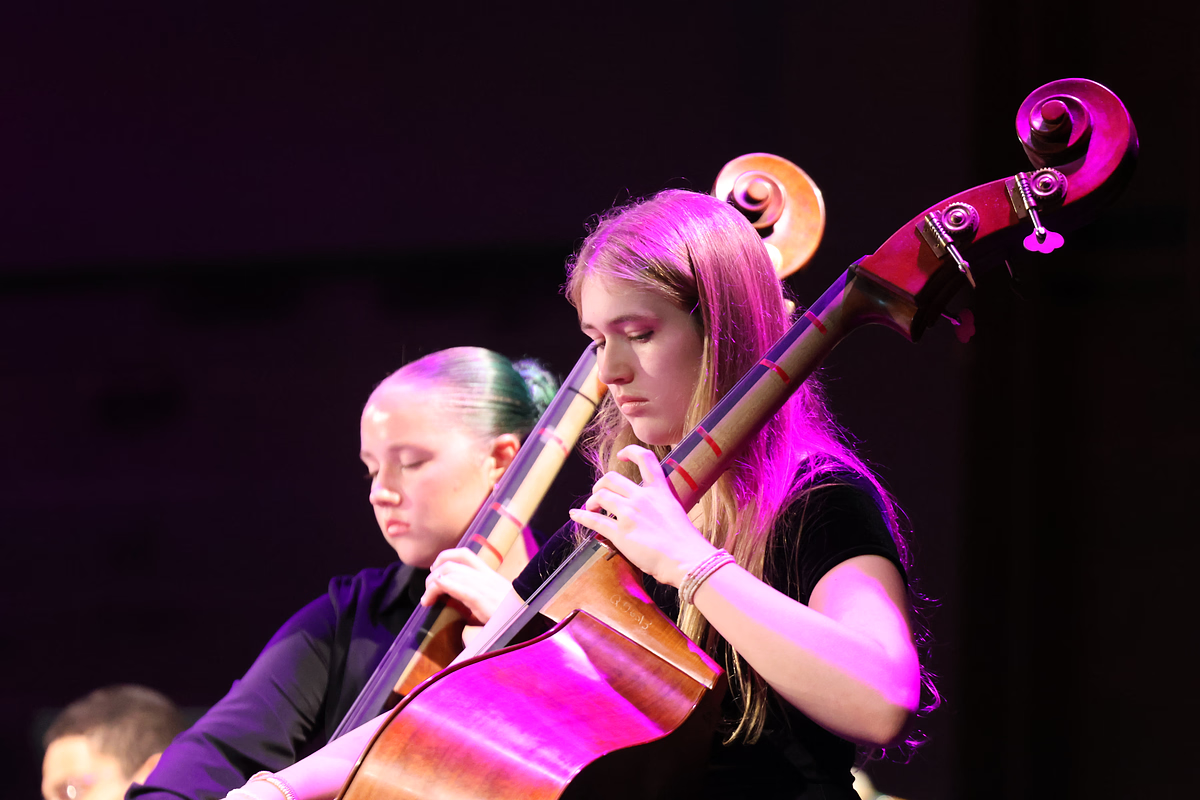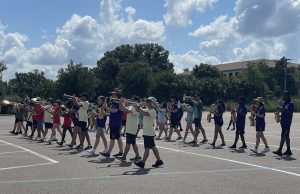“What If?” question comes to Theory of Knowledge classroom
Photo K. Corwin
Justin Marquez (’17) makes a point about Obamacare.
November 14, 2016
In Larry Hollis’ Theory of Knowledge class, students are learning about history as an area of knowledge. To aid in this curriculum, Hollis turned to a very relevant discussion of history in the making: this year’s Presidential Election. I had the unique opportunity of speaking to two first time voters the day of the election before and sitting in on a class discussion the day after the release of the election’s results*.
*Editor’s note: Despite Donald Trump’s victory, the majority of the class held left-wing views, and the selected quotes reflect this majority.*
On Voting for the First Time:

“They clapped when I went in. They were like, ‘First time voter!’ It was really quick, [because I did early voting]. You definitely want to go earlier.”- Jennifer Laux (’17)
“If you’re voting in the future, get ready, because there are people that you will have no idea who they are. I tried to find out who all of them were, but some of them I couldn’t even find online, like Supervisor of Soil Management. One person’s name had ‘Pizza’ in it, and I voted for them just because it had pizza.”- Sean Piontek (’17)
Social Issues:
“What we’ve seen traditionally among conservatives, which is what the Congress has become, is that conservatives also oppose gay marriage. So whether or not Donald Trump cares about it, there’s still a good chance that same sex marriage act will be repealed because the Congress itself opposes same sex marriage.” – Gabi O’Brion (’17)
“[Obamacare] was put in place for the people that don’t have enough means to get the things they need. If there’s a kid living in poverty and suddenly he needs a life-saving surgery, that’s what Obamacare goes to. We pay a little bit extra so that these people can live.” – Justin Marquez (’17)

“Besides a woman’s right to choose, which is always debated, there’s not much you can do legally at this point, but the whole mindset towards women… people are striving so hard to take step forwards to feminism, and I feel like it will just bring us back.” – Claire Casper (’17)
“Even if all of the bills [Trump proposes] don’t pass in Congress, his opinions still engender feelings of hate and division in the country itself among the people. A bill doesn’t have to be passed to treat social issues in a violent manner.” – Paula Rescala (’17)
President Trump’s Demeanor:
“Everyone keeps saying, ‘We wanted Trump because he’s not a politician, he speaks his mind, and we don’t like that politicians lie just to get into office,’ but if you’re saying he’s going to change his radical views the moment he gets into office, then isn’t he exactly the same as the politicians who weren’t insulting people along the way?”- Casper
“I don’t really know much about Trump as a policymaker, I just know him as a high-energy candidate, but going off of that, I think he’s going to change the landscape of the American people.” – Ralph Gonzalez (’17)

“No one’s made a huge uproar that he’s made racist comments, but if he goes somewhere where those other countries are present and says something even slightly offensive, they’re going to take it extremely personally.”- Casper
“Obviously, he’s said some things, but I think it’s safe to assume that he was just saying a bunch of radical stuff to draw in voters that are dissatisfied with the way things are going.”- Alec Graybill (’17)
“The main reason why people voted for Trump is because he’s so anti-establishment. The national debt, as we know, is [$20 trillion], so I think that’s why they voted for him, because they wanted change. It might be good change, it might be bad change, but we just wanted to stray away from the path and try something new.” – Gonzalez
Foreign Affairs:
“I don’t like that he’s expressed so much interest in nuclear weapons. I do not feel comfortable with someone with such a rash and unpredictable personality in control of the most dangerous weapons in the world and in history. I don’t want him representing me at a foreign conference. People already have this view that Americans are slovenly, and Trump’s just going to show up and make a scene.”- Casper

“I was looking at an article of newspaper front pages from across the world and there was one in Spain that said ‘God Pray for America,’ and I think stuff like that, in terms of foreign policy, reflects his demeanor and how it effects other countries’ relationship with us, making them less willing to work with us.”- Isabel Hanewicz (’17)
“Do you think it’s a good thing that we’re involved in practically every foreign affair in this world? It’s wasting all of our resources instead of fixing our internal problems.”- Graybill
“Especially militarily, I think we need to pull back out of other countries, but I do also believe that globalization itself is a good thing. I think it’s important to be connected with other countries and be a part of world affairs.”- O’Brion

